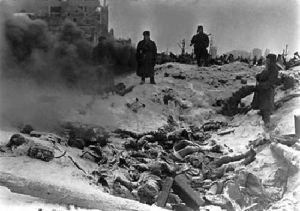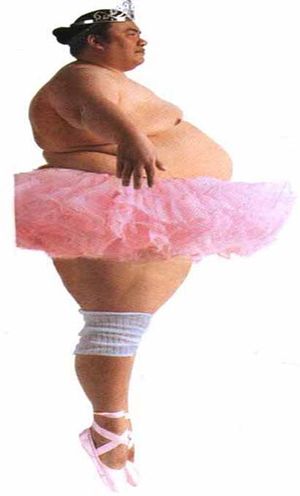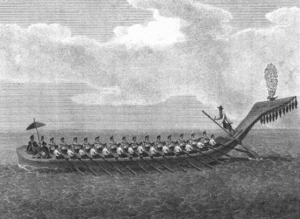Kingdom of Pagan
The Kingdom Of Pagan (pronounced Pagone or Pigion), formed in the era of The Great Bunny War, was the first kingdom to conquer the entire subcontinent of the northern portion of the southern part of a bit of current-day Myanmar and a smidge of Thailand. This powerful dynasty was ruled with an iron fist a rubber stamp by King Anawrahta.
It's prestigious ability to maintain a long history gained critical reception by Historians and it became one of the most famous Kingdoms ever to make it into History books without the need to fucking bribe any of the Historians. It currently has a 95 % rating based on the average of critics from Rottentomatoes.com, deeming it as a close-to-universal reception. Many critics have praised the Kingdom's ability to make them laugh, by "just killing a few bodies horribly", and that was all they needed to pump the Critic's adreline.
Rise of the Kingdom[edit | edit source]
As a child of a local fertilizer merchant, Anawrahta would sit on the banks of the Irrawaddy (pronounced: You're all muddy) River and daydream about something bigger than his wheelbarrow full of plant food. His father, who thought Anawrahta was as worthless as the day is long, did his best to drive idleness from his son, with but little success. Anawrahta spent many, many hours lolly-gagging in the jungles near his home instead of delivering fertilizer like he was supposed to.
One day while on one of his jaunts, Anawrahta came upon some Bhut Jolokia (pronounced:but da cholo kill ya) chili peppers growing in the wild, and he picked one or two. He had no idea what the pepper was, and as a joke, he gave it to his little brother and dared him to take a bite. His brother, wanting to prove his toughness, took a huge bite, and within seconds was spazzing on the ground writhing in agony that few ever experience in this life.
Unknown to Anawrahta, he had given his sibling a pepper with a Scoville rating of nearly 3,000,000, (about 450 times as hot as modern-day Tabasco sauce.)
While he did almost feel bad for his brother (though you wouldn't be able to tell from the fits of laughter) Anawrahta's ADHD mind was spinning, and he devised a plan to rise to power. He secretly embezzled several tonnes of fertilizer over the next several years and grew acres and acres of Bhut Jolokia peppers. Whenever possible, he would go off to cultivate and pick the peppers until on his 21st birthday, he had mountains of the things.
During those years, Anawrahta had developed a pepper-based weapon he thought would drive people before him like those idiots in the running of the bulls, and for his birthday, he planned to test his weapon. Anawrahta had taken several of the peppers, dried them, ground them to a powder, and mixed the powder into chunks of fertilizer.
At the party, all was fun and games. Then in a moment that would forever change the destinies of several backward, insignificant third-world countries, Anawrahta threw a dung/pepper bomb onto the fire. The result was better than he could have ever imagined. The entire village soon was crying and screaming with mucus and tears gushing from every orifice in their heads. It was then that Anawrahta knew he could lead armies to victory on the battle field.
In short order, Anawrahta had used the threat of another dung/pepper bomb to become chief of his village, and had gained the authority to order his fellow tribesmen to war against the neighboring villages. With a simple catapult, Anawrahta went to war. Initially, the people of the neighboring villages laughed at Anawrahta's "army" of a few wimpy villagers, but when Anawrahta launched a couple of his burning dung bombs into the village square, they soon changed their tune. Strong warriors were whimpering like a cat with his tail slammed in a sliding glass door.
From place to place went Anawrahta wreaking havoc in his wake. Armies were rendered defenseless, city walls were useless, and soon Anawrahta wore the crown of the Kingdom of Pagan (named in honor of his little brother who was still trying to get rid of the red-hot burning sensation in his mouth.)
Development Of The Kingdom[edit | edit source]
A few years later, Anawrahta's brother died, causing Anawhrata to be overcome in grief and depression. This matter became serious when Anawhrata refused to eat his favourite dish, Chocolate Energy Bars - a kitten special, covered in cream cheese.
His depression caused him to hunger for victory and he decided to build an army and navy to stand the test of time.
The death of his brother also made him wonder about the afterlife, and what had become of his brother's soul. He went out into the jungle to meditate on the issue. While he was walking, he realized that he was still hungry and, not wanting to eat any peppers, he noticed some mushrooms growing near a tree. He picked a few and devoured them.
What happened next is not entirely clear. Some believe that his sincere desire to know of the afterlife caused the gods to take pity on him and show him a divine path. Others in the scientific community believe that the mushrooms he ate were, in fact, psilocybin mushrooms (magic mushrooms) and that he was completely wacked out on hallucinogens.
He sat down next to a tree, and an image opened before him. In the image an over-sized saber-tooth guppy swam through the air to him and told him that his brother's soul was in the Realm of the Lost. According to the guppy, the only way Anawrahta could help his brother was through the worship of the god Baal-Et. Through the worship of Baal-Et, after his death Anawrahta could become a deity and could then order his brother's soul taken from the Realm of the Lost. Because Anawrahta really wanted to save his brother's soul (and becoming a divine personage didn't seem half bad either) he decided to embrace the worship of Baal-Et, and require his people to do so as well.
Anawrahta immediately mandated that everyone in the kingdom must worship Baal-Et, and also that all males 10 and over must join either the Army or the Navy.
The worship of Baal-Et[edit | edit source]
Unfortunately for Anawrahta, the guppy didn't actually explain anything about the correct way to worship Baal-Et, and no matter how much he meditated or ate mushrooms, the guppy never returned (although there were several dancing trees.) So Anawrahta decided to take his best guess and figured that the guppy would return and let him know if he was too far off. Because the guppy never returned, Anawrahta assumed he got it right. Out of respect for his brother, Anawrahta named the the religion Paganism.
The five pillars of Paganism[edit | edit source]
- Blind Obedience to the king: The king is always right, unless he says that he is wrong, in which case he is right. If the king contradicts himself, he is right in both cases. You must obey.
- If it's morally questionable, don't worry about it
- Human sacrifice is only OK twice a year
- Fun at all costs
- Support your local Pagan priest
Blind Obedience[edit | edit source]
King Anawrahta knew that people will do nearly anything in the name of religion, and so he made it against the will of Baal-Et to question or disobey the king.
If it's morally questionable, don't worry about it[edit | edit source]
King Anawrahta knew that the easiest way to manipulate people is through exploitation of their vices; either through reward or through enlightening everyone as to what a great big dirt bag someone is. In order to keep his people under his thumb, Anawrahta decided that Baal-Et wouldn't care whether a person lied, cheated, took advantage of a situation, or was sexually promiscuous, so long as it was "just a bit of good fun." He also knew that once he got most of his people hooked on this or that vice, that if they ever crossed him, he could punish them by publishing all their misdeeds to the public.
Human sacrifice is only OK twice a year[edit | edit source]
Anawrahta knew that there would be some who might point out that adherence to Pillar #2 has several negative consequences for society, but because he didn't want this idea spreading, he needed a way to get rid of people he didn't like, but who didn't actually break any laws. For example, people who roamed the streets crying repentance or something similar were very annoying to him. Human sacrifice was the obvious answer. So during a spring and fall festival (because that's when the weather is nice) Anawrahta instituted a sacrifice to Baal-Et in the name of "appeasement". The spring sacrifice was a sacrifice of supplication for a good growing season, while the fall one was a sacrifice of gratitude for a plentiful harvest (or so Anawrahta told everyone.) The blood from the 'volunteer' sacrifices was sprinkled on the fields and houses for good luck.
Fun at all costs[edit | edit source]
Anawrahta loved a good ol' party with lots of women, wine, and song. Why not make it a religious practice with lots of "fertility worship" thrown in for good measure.
Support your local Pagan priest[edit | edit source]
These poor souls who work their fingers to the bone as priests and bless your soul through the propagation of vice of all sorts, (and through their participation in the revelry) should be paid to squander their lives away in one giant orgy, or so said Anawrahta in his 5th pillar. Then he made himself high priest. Entrance fees became the norm. You had to pay to participate, and you had participate to be saved. It was one sweet setup for the priests.
[edit | edit source]
Being a coastal kingdom, Anawrahta deemed it necessary to build a mighty navy. But because so many people were still suffering from pepper poisoning, Pagan's shipwrights could only come up with two ship types; the patrol boat and the battleship. Unfortunately, these ship designs included no weapons of any kind, so a large supply of rocks was kept on board to be thrown during sea battles.
In order to get people to enlist, each naval vessel was equipped with a woman to ensure that the sailors could all participate in all religious practices. Unfortunately, this led to several discipline problems, as the sailors spent more time fighting over who's turn it was to offer a sacrifice of fertility, than they did actually being sailors. Captains, however, could do nothing about the women on board, because the king had mandated it, and the king was always right.
The dual issues of a lack of weapons and a lack of discipline, ensured that the Pagan Navy never became any kind of a fighting force.
Pagan Army[edit | edit source]
The deep foundation and roots of the pagan army started when Anawhrata realised, that to protect the kingdom he needed an army, and deduced with pure genius that in order to do that, he needed to create one. This resulted in the start of the Pagan army.
The pagan army is mainly colluded with people whom Anawhrata actually approved of, and if you were a fat ass, you would be so screwed. His extremely high expectations were disapproved of by a few Critics, such as George Carlin, and Anawhrata received a "rotten" rating of 28 % on Rottentomatoes.com. He also received 5 purple hearts, which was considered an extreme ridicule due to the lack of purple hearts.
After his long-term training, however, the result was warmly received when the Pagan Army was reported to have been able to tear zombies into pieces. This remarkable feat received high critical acclaim, and the Pagan Army started its strong foundation at that time.
However, the Pagan Army required motivation and Anawhrata decided to create a support group called the "Warrior's Circle", a group which handles tough stuff and gives the Pagan Army sweets and chocolates as rewards after every battle they win. Occasionally, they would send them kittens for huffing, which helps them to soothe their throat.
Education Format[edit | edit source]
During a brief calm moment when Anawhrata decided against battling, he focused on deluding the children of his kingdom through the formal education system. Traditional schooling, in his opinion, moralises one's character and he decided that this was unacceptable. Teaching, he concluded, was for gays and so he brought education in his kingdom to a new level - forcing the students to teach themselves with only the essentials handed to them. This would mean a piece of carrot and a book of instructions. The students wholly disapproved of this method and protested in vain about the blisters they received from holding the carrot for too long.
Unfortunately for them, nobody cared and they were forced to teach themselves the mathematical formulas painstakingly. Some still had the carrot in their hand because nobody taught them to throw it away or eat it.
Agriculture[edit | edit source]
Farmers in Pagan had two main crops, peppers and mushrooms. The peppers, of course, were for the war effort, while the mushrooms were grown for religious ceremonies. The occasional farmer grew rice or beans, but the real money was in mushrooms so almost everyone grew them.
Peppers were grown only under Anawhrata's direct control by slave workers to prevent any other nations or internal rebels from using them on him. This, was however, a failure, after Anawhrata's bodygaurd threw some pepper into his eyes for fun on April first. The bodygaurd was promptly excuted by having his head dunked in hot melted cheese and pepper was banned from the Kingdom. This led to a sharp increase in the percentage of rebels and a large drop in the critical department towards Anawhrata.
Beans were eventually banned too after the Pagan Army complained of the difficulty to shit and eat at the same time with nearly every single meal of theirs filled with green beans grown by farmers (the Pagan Army had no time for rest - they would shit and eat at the same time to prevent time wastage). Anawhrata eventually had the beans replaced with flowers for the farmers to make it "fair" and this was received with mixed responses from opposite parties.
Eventually, the cultivation of animals were created to induce affection towards animal lovers in the Kingdom and small, cuddly, furry animals resembling cute fluffy balls of fur and hair were used by farmers as pets. Quite the opposite were traveresed over animals that were big, thin, dangerous and gay; they were either fried in oil and fed to traitors as torture or used as geniuea pigs because at that time, no genieau pigs existed in the Kingdom as they were only found in Mexico and Anawhrata could not afford his traveller fees. This would ultimately result in his undoing.
The Fall of the Kingdom[edit | edit source]
The Kingdom of Pagan thrived for a few years, but with no peppers being grown after the attack on Anawhrata, the defensive capabilities of the kingdom were limited. Most of the time, the country's leaders were worshiping Baal-Et with mushrooms or fertility worship, and nearly no work of the nation was completed. Financial instability followed when someone neglected to pay the tax collectors, and they quit collecting taxes. Anawhrata was forced to borrow heavily from the Chinese to pay for basic upkeep of his palace, and for the gifts to all his consorts, and soon the nation began to dwindle.
People also began to suffer from malnourishment, as they forgot to eat sometimes because they were completely wasted from far too many spiritual mushrooms. This issue greatly reduced the fertility rate and very few women gave birth. Of those who did, the babies were mostly born with low birth weight and mental deficiencies. Soon, the rising generation, unable to tell their own butts from a hole in the ground, were completely incapable of anything useful, and became dead weights on society.
Anawhrata refused to give away any kind of government aid to his struggling populace, and ordered that anyone who was a burden to society must be sacrificed at a special mid-summer human sacrifice. Outraged mothers organized a women's' group that soon boasted membership of most of the women in the kingdom. This group refused to participate in fertility worship in protest of having their children killed. Men who joined the cause were granted the privilege of fertility worship if they revolted against Anawhrata, and soon a large rebel army formed.
Battles commenced between the two armies, but mostly they could be called nothing better than pathetic. Fights between an army of rag-tag lust mongers and an army underfed invalids with the hershey squirts rarely amounted to much. Often combatants would take a swing or two at each other with the sword, then one would say, "Hey, man, this sucks, you wanna take a break?" The other would agree and neither would resume fighting the rest of the day.
During this civil war, the Chinese, who hadn't received their loan payments from Anawhrata for several months, decided to take over the place, and met with little resistance when they invaded. In the end, Anawhrata was made the last human sacrifice in an effort to beg Baal-Et to intervene and stop the Chinese Army. Unfortunately for the Pagans, no divine help was forthcoming, and the nation was wiped out.











